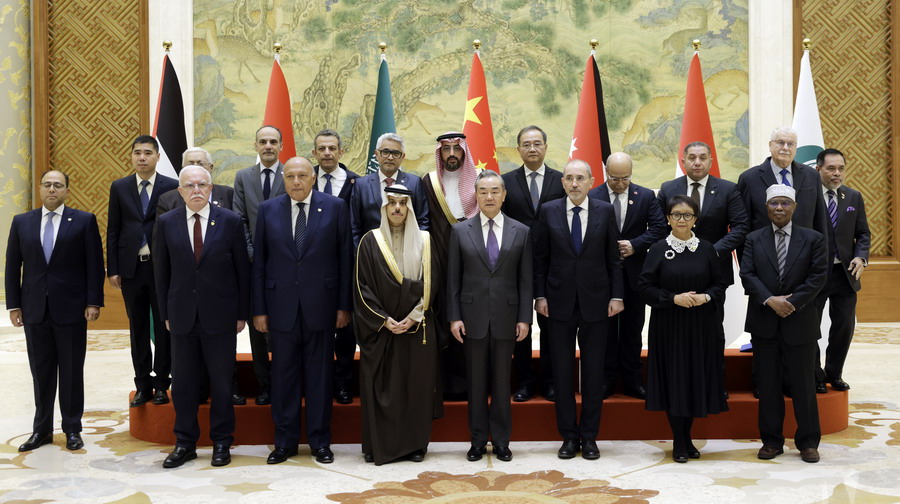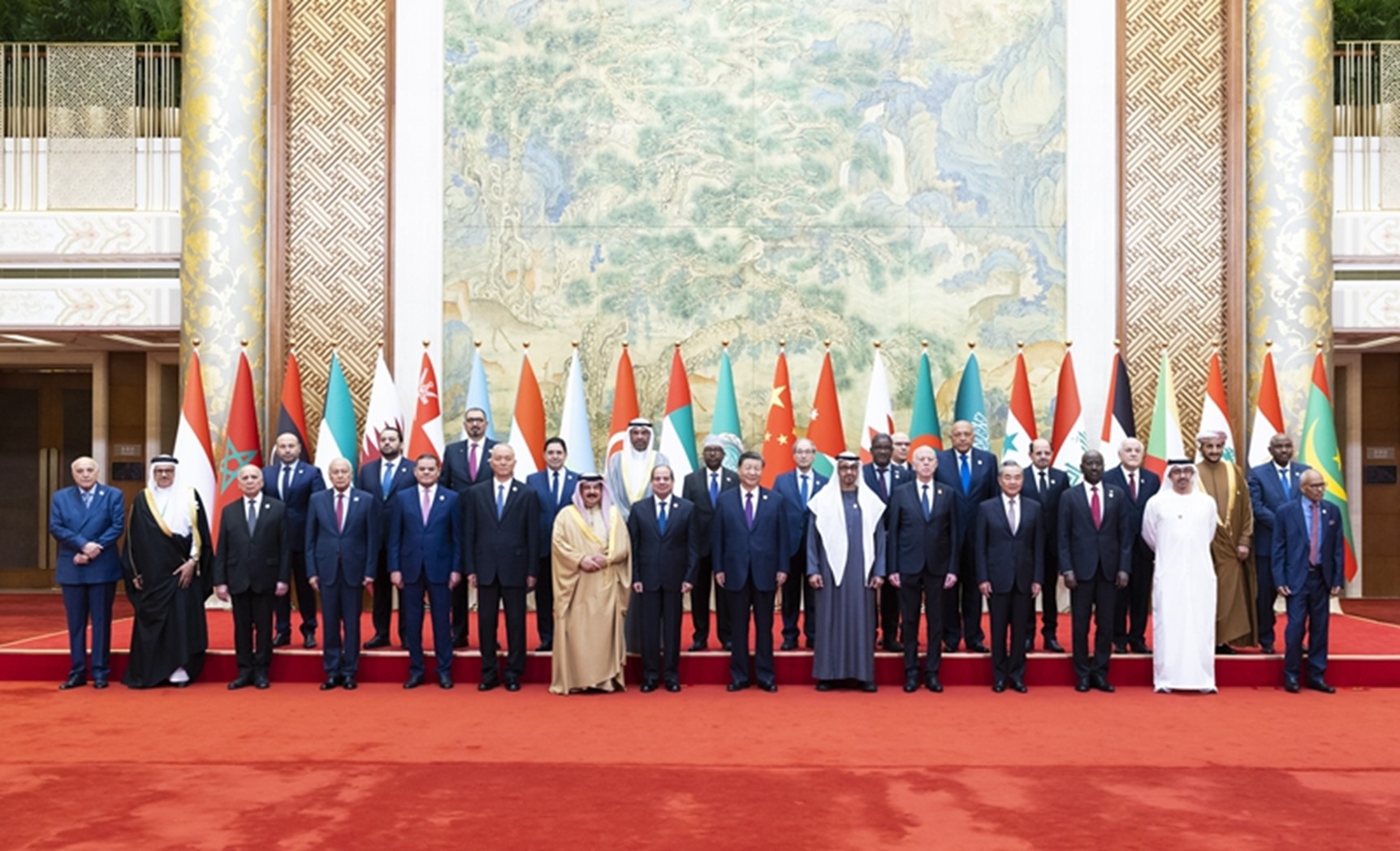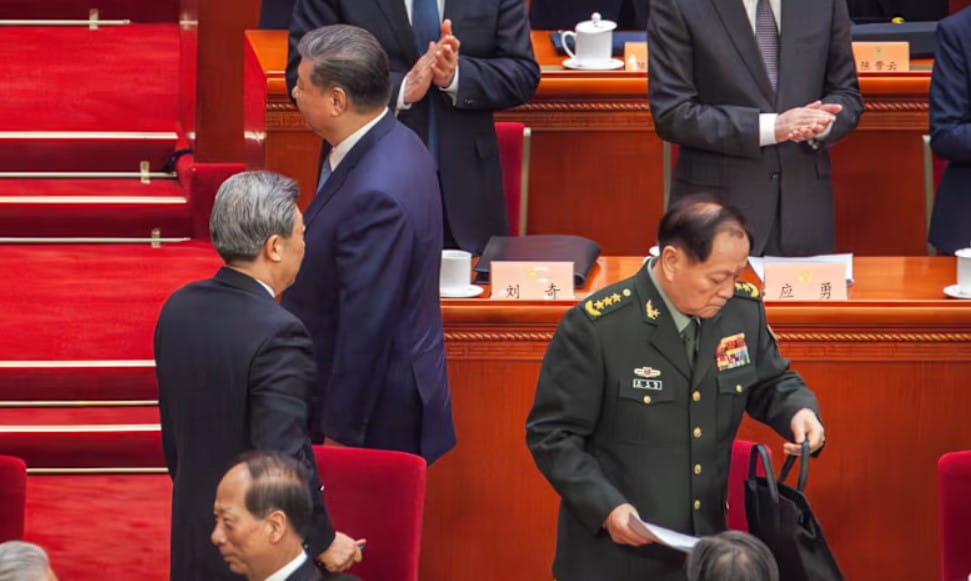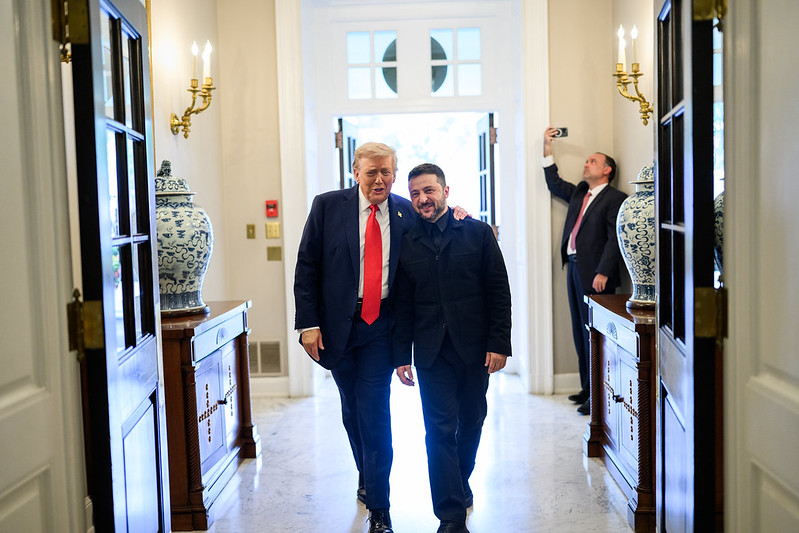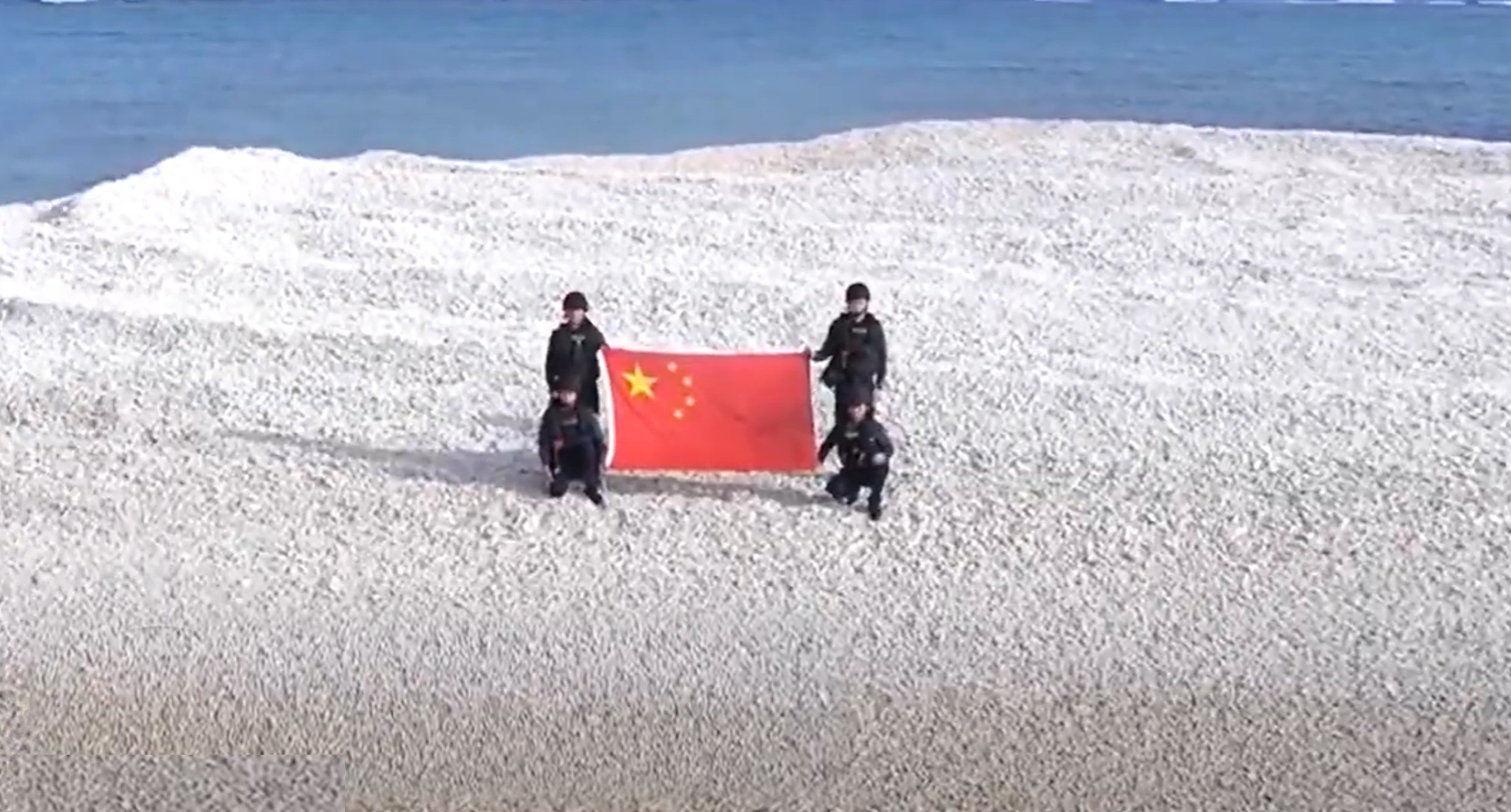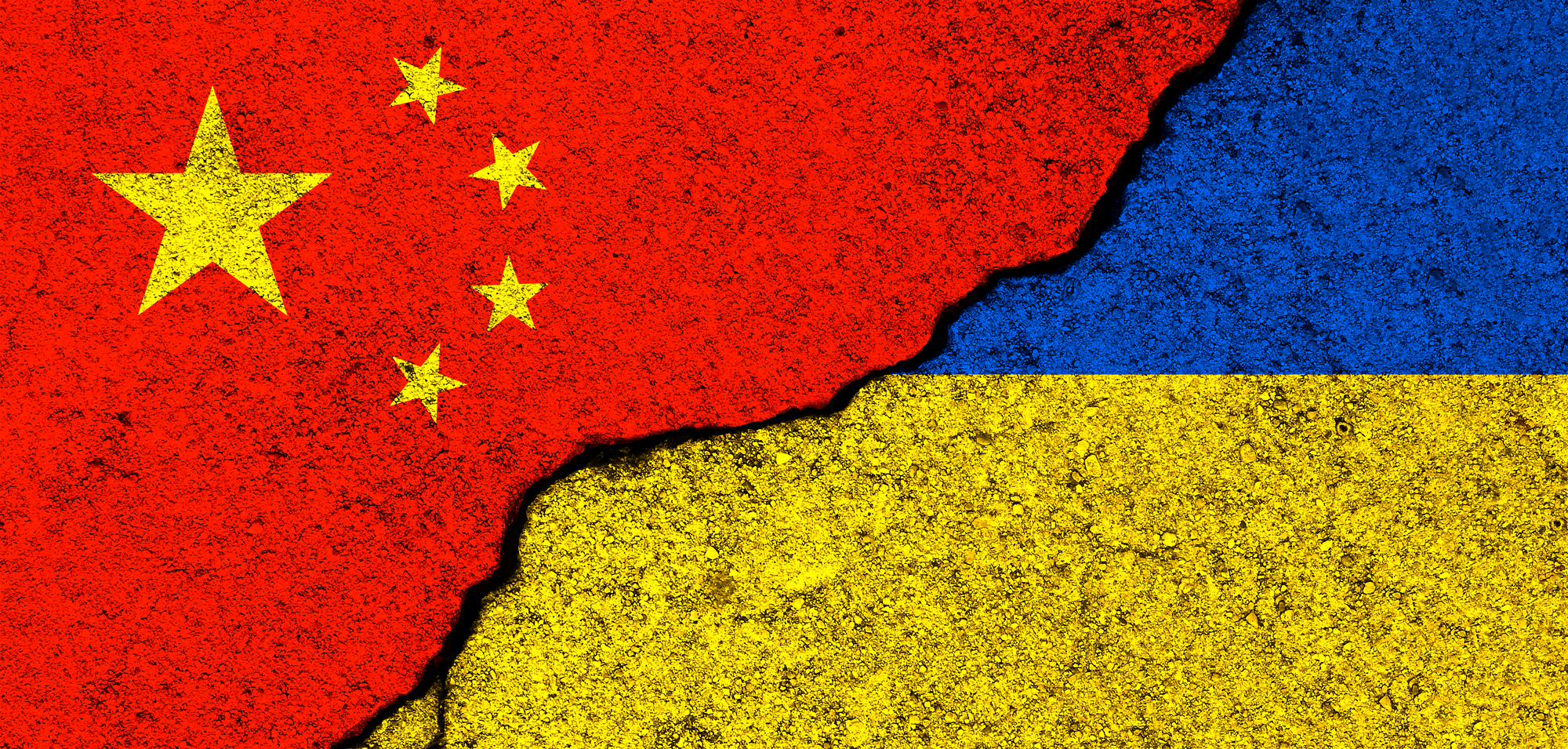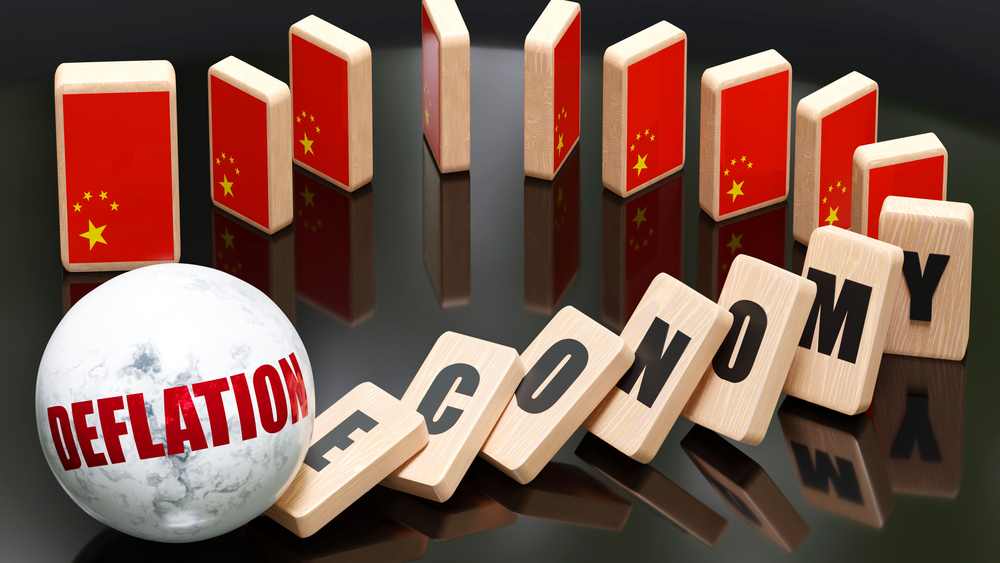It was no surprise when a delegation of Arab and Islamic foreign ministers showed up in Beijing in late November in a quest for a ceasefire of the war in Gaza. Beijing is using the Gaza war to launch a diplomatic offensive to further enlarge its rapidly growing footprint in the Middle East.
Picture source: PRC, Ministry of Foreign Affairs, November 20, 2023, https://www.mfa.gov.cn/web/wjbz_673089/tpsp/202311/t20231120_11183431.shtml.
Prospects & Perspectives No. 64
Gaza-Israel Conflict: What Impact on China’s Regional Role?
By Robert A. Manning
It was no surprise when a delegation of Arab and Islamic foreign ministers showed up in Beijing in late November in a quest for a ceasefire of the war in Gaza. Beijing is using the Gaza war to launch a diplomatic offensive to further enlarge its rapidly growing footprint in the Middle East.
While the Gaza war illuminates China’s strengths and weaknesses both regionally and globally, thus far, it is a huge diplomatic windfall for Beijing, which portrays itself as politically neutral and pro-Palestine. Israel’s all-out war, which the U.S. has supported unconditionally, is staining the U.S.’ image, generating massive protests and backlash across the Arab and Islamic world.
‘Good friend and brother’
Thus, on cue, China’s Foreign Minister Wang Yi told the gathered Arab ministers that China was a “good friend and brother of Arab and Muslim countries.” He stressed China’s support for a ceasefire and ultimately a two-state solution saying that Beijing has “always firmly supported the just cause of the Palestinian people to restore their legitimate national rights and interests.”
China’s messaging of support for the Palestinian cause, refusal to openly condemn Hamas’ savage, barbaric attack on Israeli civilians, and calls to end the war and for a just Palestinian peace are designed to build influence in the Global South and build its “street cred” to reinforce its booming economic and political ties to the Middle East. China’s “Five Principles for Peaceful Coexistence play well in this situation, especially, respect for sovereignty, non-interference, and non-aggression. They stand in contrast to the U.S. political embrace and military support for the Netanyahu government and its offensive on Gaza.
Beijing’s role in the Middle East has been growing substantially over the past decade as its economic ties to the region expanded. About two-thirds of Arab Gulf oil exports go to Asia; about 50% of China’s oil exports come from the Gulf, with Saudi Arabia being the largest exporter, providing more oil to China than Russia. The UAE and Iran are also major energy suppliers to China. Beijing has sought to balance its ties to Saudi Arabia and Iran to avoid being seen to take sides in the Sunni-Shia divide shaping regional tensions. Over the past three decades, China also developed strong economic and military ties to Israel, acquiring tech and military equipment. And similarly, to Beijing walking away from its robust ties to Ukraine, it is now distancing itself from Israel.
China clearly has a large stake in oil and broader trade shipping through Straits of Hormuz, and thus, in stability in the Middle East. This helps explain why it has built a strategically located military base in Djibouti and is rumored to be pursuing bases in the UAE and Oman. Yet for decades, Beijing has been free-riding on U.S. security dominance in the region with Washington’s ring of air and naval bases and some 35,000 troops based in Arab Gulf nations.
Regional concerns
However, beyond its energy ties, Beijing is building a dense web of economic and geopolitical ties to an increasingly multi-aligned Middle East concerned about US reliability. China is now the second biggest trading partner of both Saudi Arabia and UAE, with cross-investments on oil refining and petrochemical industries, as well as Chinese technology. Middle East nations are part of Beijing’s “Digital Silk Road,” installing 5G equipment and digital infrastructure.
The economic dynamics serve as a foundation for Beijing’s political role which has also expanded qualitatively since 2022. The much-heralded Chinese ceremony presiding over the Saudi-Iran diplomatic normalization deal last March was less an achievement of Beijing’s diplomats than clever Saudi political theater. Saudi-Iran talks had been ongoing for months in Oman. In an effort to boost leverage with the U.S., with whom it was bargaining for a security and nuclear deal as the price of Riyadh normalizing ties to Israel, the Saudis invited Beijing to help close the deal.
In any case, Saudi Arabia, UAE, Iran and Egypt joining the BRICS in August is emblematic of China’s burgeoning influence. Beijing initiated China-GCC and China-Arab Dialogues as well as signing a “strategic partnership” accord with Riyadh. China has been trying to persuade the Saudis to use Yuan to pay for oil, and just signed a currency swap agreement with Riyadh. In sum, China’s burgeoning economic and diplomatic posture positions it well in a changing strategic multipolar geopolitical landscape with the Saudis/GCC, Turkey, Iran, Egypt, U.S., and Russia vying for influence and the region playing off this to its own advantage.
Nonetheless, the Biden administration tends to downplay this multipolarity and fears China may displace the U.S. in the Greater Middle East. This concern animated the U.S. push to arrange a Saudi-Israel normalization deal, though now on pause in the face of the Gaza war.
More than meets the eye?
China undoubtedly sees benefits with the U.S. overstretched with expanding commitments in two open-ended conflicts over which it has only limited agency, the Israel-Palestine conflict and the war in Ukraine. These conflicts are militarily draining and competing for resources and policy bandwidth with the U.S. priorities in Asia. In addition, the political backlash from U.S. support for Israel boosts China’s soft power and diplomatic cache in the Middle East.
But China’s political windfall it may be short-lived for two reasons. As has been the case with Ukraine, Beijing’s calls for ceasefires and resolutions increasingly appear hollow cost-free platitudes. There is no follow-through, no active efforts to use its leverage with Russia in the Ukraine case, nor invest itself diplomatically to resolve the Palestinian question or cooperate with the U.S. to do so.
China is unable to underpin security in the region which still mostly see the U.S. as the security guarantor of last resort. This disconnect between China’s economic presence and influence and its absence of a security role provides the space for Middle East nations to hedge, playing off competing outside powers. China’s internal economic morass is shrinking its financial largess Thus, its soft power may dissipate into what the region may see as just hollow political gestures.
At the same time, turmoil and prospective instability in the Middle East, which not likely to subside in the near future, may bog down the U.S., but is also poses risks for China. It is unclear if the fragile Saudi-Iran détente will hold. If tensions rise, Beijing’s neutrality could place it in a difficult position. For the near future, however, another U.S. Middle East quagmire is an opportunity to bolster its image in the region and more broadly in the Global South.
(Robert A. Manning is a distinguished fellow at the Stimson Center. He previously served as senior counselor to the undersecretary of State for global affairs, as a member of the U.S. secretary of state’s policy planning staff and on the National Intelligence Council Strategic Futures Group.)


